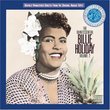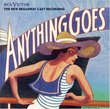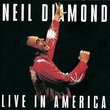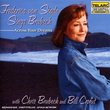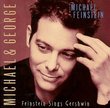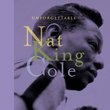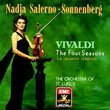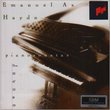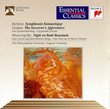| All Artists: Thomas Hampson, Verdi, Oae, ARMSTRONG Title: Opera Arias Members Wishing: 0 Total Copies: 0 Label: EMI Classics Release Date: 4/10/2001 Genre: Classical Style: Opera & Classical Vocal Number of Discs: 1 SwapaCD Credits: 1 UPCs: 724355711328, 724355711359 |
Search - Thomas Hampson, Verdi, Oae :: Opera Arias
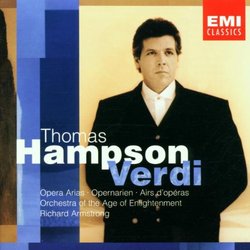 | Thomas Hampson, Verdi, Oae Opera Arias Genre: Classical
Thomas Hampson is one of our most admired baritones, expert in lieder and a range of operatic roles, primarily from the German and French repertories. So it's something of a surprise to find him featured on a disc of Verdi... more » |
Larger Image |
CD DetailsSynopsis
Amazon.com Thomas Hampson is one of our most admired baritones, expert in lieder and a range of operatic roles, primarily from the German and French repertories. So it's something of a surprise to find him featured on a disc of Verdi's brilliant high-baritone arias. The result is a beautifully sung, carefully prepared program that should impress Hampson's fans with his vocal acumen and adventurous spirit, but may leave many Verdians pining for the broader, more Italianate voices that have traditionally excelled in these roles. The problem is compounded by the focus on early- and middle-period operas, which benefit from a burlier, less subtle approach. That said, there's much to enjoy here, from the admirable Macbeth arias (with "Pietá, rispetto, amore" taken in one arching phrase without a break for breath) to the rarely heard French versions of arias from Trovatore and Sicilian Vespers. --Dan Davis Similarly Requested CDs
|
CD Reviews4 1/2 stars, actually, mostly for the singing madamemusico | Cincinnati, Ohio USA | 08/27/2001 (4 out of 5 stars) "Thomas Hampson has always been something of an enigma to me: musical and sensitive in lieder, brash and blustery in opera. This album of early-to-mid-period Verdi arias provides an important clue as to why. Hampson has very little feeling for Italian opera as such, therefore he sings it in a cavalier manner; but on this album, he treats each of these arias as if it were an art-song with sometimes intriguing, sometimes superb results. Oddly enough, the aria that suffers the most from this treatment is one of the most famous, "Di provenza" from "La Traviata": he does not revel in the sheer outpouring of voice, but rather tosses the music off lightly. Unfortunately, Germont Pere is a callous SOB, not a light-voiced dreamer. In other arias, however, such as those from "Ernani," "Il Corsaro," "Les Vepres Sicilienne," "Stiffellio" and "Macbeth," Hampson probes the characters deeply, using his lieder-singer's sensitivity and attention to words. Not too surprisingly, some of this music is dreck because the operas they came from were, well, not Verdi writing from his soul. Worst of all is the forgettable aria from "I Masnadieri"; surprisingly good are the arias from "Corsaro" and "Stiffellio." The Age of Enlightenment Orchestra plays beautifully, though I am not very happy with the producer's decision to magnify the woodwinds and recess Hampson's voice: this presents a distorted soundstage that makes you feel as if Hampson was standing inside or behind the orchestra. On the other hand, Armstrong's conducting is pleasant but lackluster. Oh, how I missed Kleiber (Traviata), Giulini (Trovatore) and even Lamberto Gardelli (who recorded all the other operas complete)! Nevertheless, this is an interesting and valuable album if you don't mind hearing this music sung by a voice that does not have metal or "squillo" in it, but merely a big, creamy sound with poetic intent. And who knows, if he heard these arias sung this way, maybe Verdi would have enjoyed them himself?" Hampson Shines in Exploring The Baritone Repertoire Dominic | New York, NY | 08/01/2005 (4 out of 5 stars) "This is a collection of Verdi arias sung by the world-renown and ever talented baritone, Thomas Hampson. Mostly known for his lieder, art song, and lyric roles, on this CD the American ventures into the lower and arguably more difficult registers of the dramatic baritone. As the other reviews noted, Thomas Hampson is NOT a dramatic baritone, he is a lyric baritone. So if you're looking for something truer to the dramatic style, then go for a Hvorostovsky, Bruson, Merrill, Milnes, Alvarez, Warren, Chernov, or even Cappuccilli. You won't find those singers here. What you WILL find, though, is a different way of seeing (hearing) some of the arias you're used to, a different perspective---remember, Hampson is one of the most sought after singers on stage today, so he knows how to put emotion and gusto into his music. Though he may not be the perfect example of what a dramatic baritone should be, I think that you'll be pleasantly surprised here. Hampson doesn't disappoint with the start (and finish) of the album: two arias from Macbeth with which he displays his vocal talents and also his ability to insert his acting into his singing---anger, remorse, sadness, delusion, and vendetta. Selections from some earlier and lesser known works of Verdi follow, a beautiful aria from Ernani and a romanza from I Due Foscari, which was the first time I'd heard it, and I was amazed by how well Hampson pulled it off. Next follows the aria of the Conte di Luna from Il Trovatore---sung in the French version; two things happen with this aria and with the later track of "Di provenza, il mar" from La Traviata: in the first, Hampson sings the French version, which is rare on recital albums, and in the Traviata aria, we get to hear the even more rarely added cabaletta that follows from Pere Germont. So not only do we get to hear a different voice singing some of Verdi's more famed baritone pieces, but we also get something a little "different" on almost each track, something that you won't find compiled elsewhere. The Orchestra of the Age of Enlightenment play very well, never drowning out Hampson, and conductor Richard Armstrong keeps true to tempi that suit the singer very well. In my opinion, the more open-hall recording of these arias are more authentic to what you hear in an opera house than some other closed studio style albums. You'll get another perspective and find something new with Hampson than you would with your other dramatic baritones. But there's no way to deny that even having the talent to venture into the area Hampson does on this CD is a huge accomplishment. Not only does he try, but he succeeds. Great singing, great vocal acting, good orchestra, and a chance to hear some Verdi that you normally wouldn't. Not bad, if you ask me. Buy this one." Verdi by the best of Lyrics - 3.5 Stars Dominic | 03/17/2005 (3 out of 5 stars) "Hampson is one of the best lyric baritones out there - I have countless cd's of his. I believe he is one of today's most convincing Mahler interpreters and a master singer of Mozart's best baritone roles. I have to say, however, that this album is not the best representative of his instrument, or rather "Verdi-an" singing. It's darn good opera, folks, but I just don't think Hampson is the ideal Verdi baritone, try as he may to convince us otherwise.
Hampson's voice is so honeyed and warm - it is sumptous and inviting, he pours through the legato lines lovingly - it's just that his physical instrument lacks the bite and ring of steel that a true Verdi baritone possesses. This collection is beautiful and it is nice to hear him more than competently ride the challenging lines of the Count in Trovatore, the lovely melody of Papa Germont, and others, it just isn't the best representation of Verdi's music. Stick with Warren, Milnes, Merrill, Nucci, and Gobbi for the best representation of the Verdi Baritone: warm and trumpeting voices. But if you're a big Hampson fan, like me, buy this, too, to hear a wonderful baritone singing some incredible music. This album reminds me of listening to Fischer-Dieskau's recordings of Verdi - highly intelligent, lush and lyrical singing, but slightly boring for the auditor. Sadly, there is a real lack in the world of Verdi/Puccini male specialists in the studio world today - as amazing as Mr. Hampson is as an artist, it is sad that this album mainly serves to remind us of that fact." |

 Track Listings (11) - Disc #1
Track Listings (11) - Disc #1![Vivaldi's Ring of Mystery [With CD]](https://nationalbookswap.com/cd//m/30/0730/80730.jpg)
